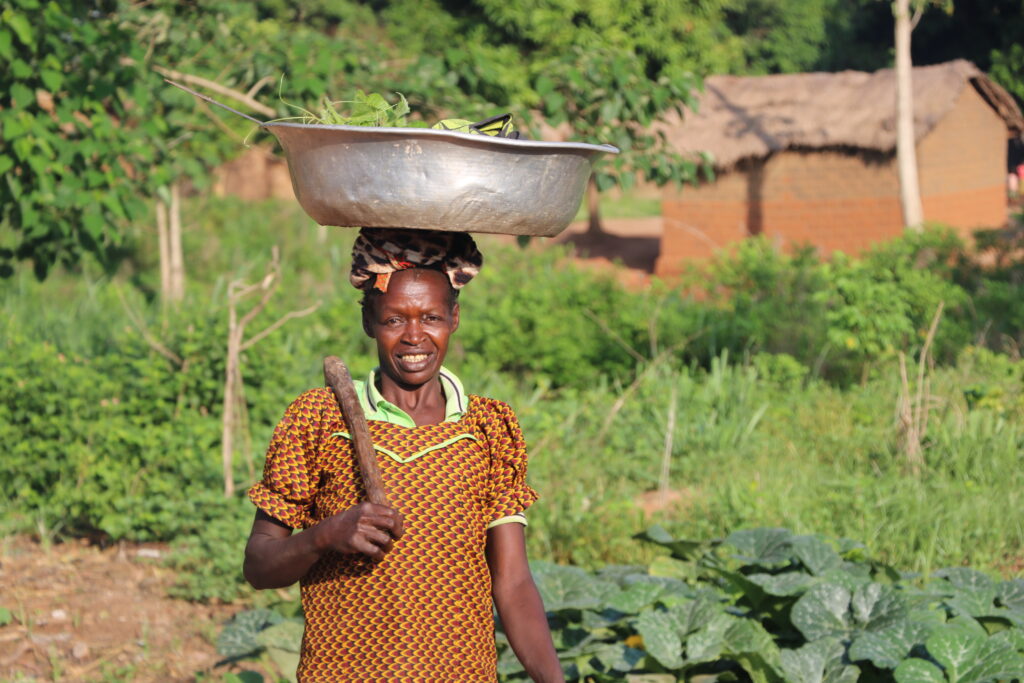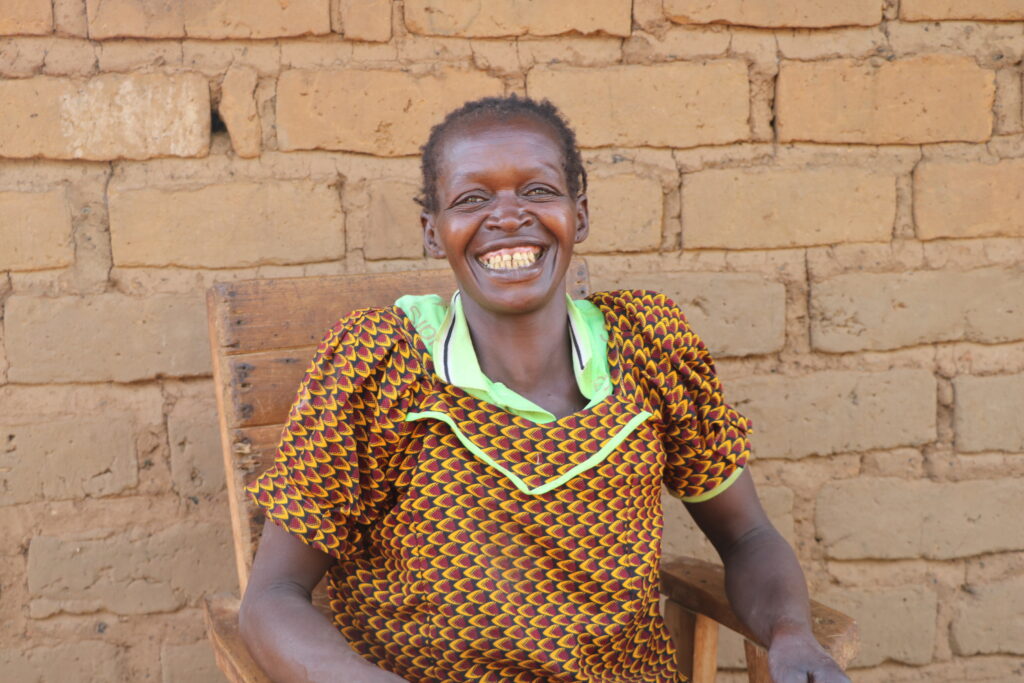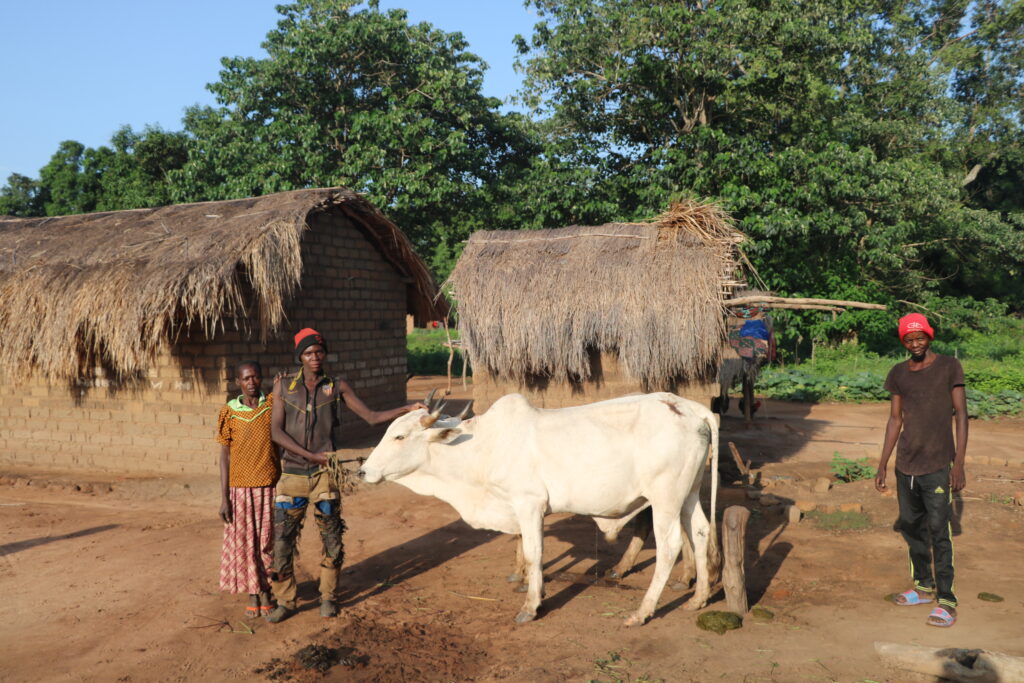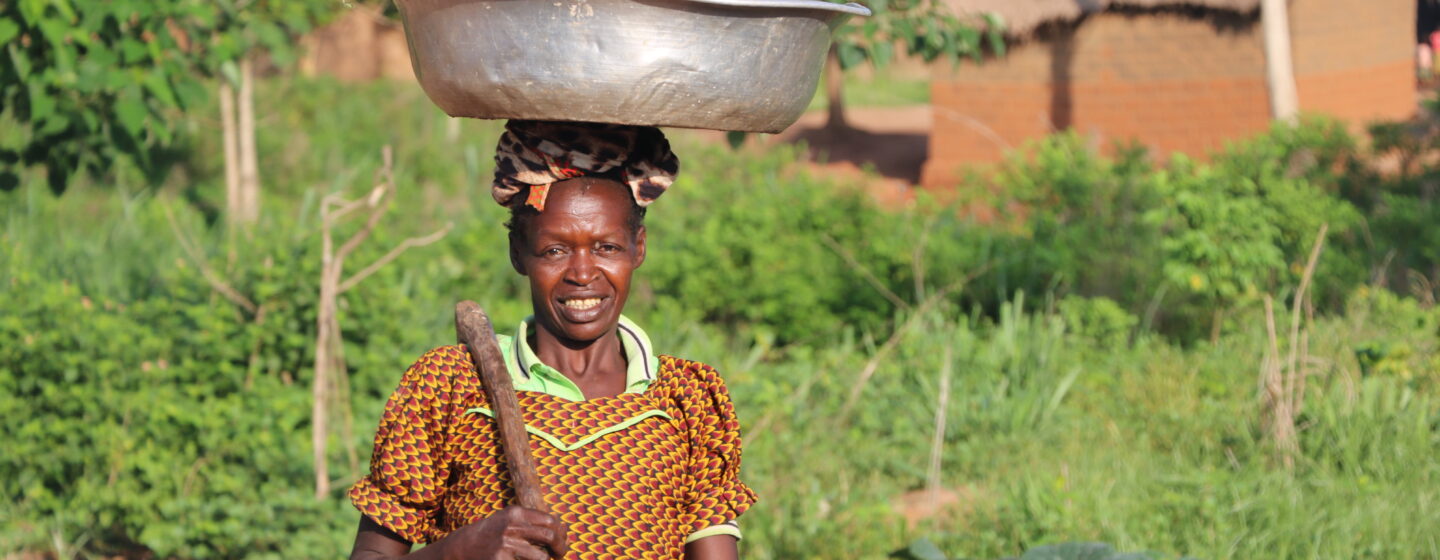In a small village nestled in the prefecture Nana Gribizi in the heart of the Central African Republic (CAR), a quiet transformation is taking root. On most days, you’ll find Deborah Selekeve walking back from her fields in Ngoulekpa 3 with a bowl of vegetables balanced on her head – food for the evening meal, harvested with her own hands. Deborah is 50 years old. She’s a mother, a grandmother, a farmer, and a leader.

In the Heart of Nana Gribizi
Life in Deborah’s village hasn’t been easy. Years of violent political and armed crises that shook the country until 2013, left scars across the region and Ngoulekpa 3 houses were burnt, lives were lost, and families were forced to flee. Granaries containing seeds were ravaged by fire. Deborah also lost the goats, pigs, chickens, and ducks she had been raising – animals that once brought in a little income and helped support her family. When the villagers returned, they found themselves in a difficult situation. Some crops could no longer be grown, and seeds were in short supply. What remained was uncertainty.
Deborah has always worked hard to support her family. Since childhood, she has cultivated land, raised small ruminants, and traded in the market when she could. Despite her strength and commitment, the results from her 1.5 hectares of land, where she grew corn, sesame, and peanuts, were often disappointing. “For several years, we farmed without good techniques,” she remembers. “We bought seeds at the local market and didn’t know if they were even good for planting. We used old methods.”
Survival with Dignity
There were times when feeding her family or sending all of her nine children to school felt out of reach. The older ones accompanied her to the fields. The harvest barely yielded a few bowls of corn, cassava, or peanuts, enough to sell a little, buy some salt, a bit of soap, and palm oil.
Meals were limited, and when someone fell ill, Deborah and her family often turned to medicinal plants and tree bark instead of going to the distant and expensive hospital in Kaga Bandoro. Then, something shifted.
Planting Hope with “Yaka ti Kekereke”
Things began to change when, one day, the village farmers were encouraged to join the “Yaka ti Kekereke” project, which means “Agriculture for the Future” in Sango, the national language.
This initiative, part of the Integrated Support Project for the Recovery of Agriculture and Food Security in the Central African Republic (PAIRASA-CAF), is funded by the European Union and implemented by Welthungerhilfe (WHH) in partnership with Concern Worldwide and Tearfund. The project aims to support more than 119,000 rural farming and pastoral households in nine prefectures, including Nana Gribizi, over a period of five years.
The approach focuses on expanding knowledge and confidence among farming communities: how to identify quality seeds, plan both sowing and weeding periods, apply modern techniques, and make better use of resources. For Deborah and many others, this marked a turning point.
Collective Strength in “Nzapa a aidé”
What stood out to Deborah wasn’t the tools or the training, it was the call to work together. Full of enthusiasm, Deborah encouraged others to form a farming group a year ago. Together, they created “Nzapa a aidé”, which means “God has helped” in Sango. Today, the group counts 28 members, and Deborah was elected president of this farmers’ association.
“Given all the poor harvests we had in the past, we talked with the staff from WHH and decided to form an agricultural group to pool our efforts and increase our production,” she explains.
With training, improved seeds, and access to better tools, the group began implementing new methods. They worked collectively and started seeing first results. What used to yield just a few bags of corn, peanuts, and sesame, was now producing abundant crops. Villagers started selling their produce at the local market. “With the quality seeds, tools and a sprayer, we were able to achieve better yields and earn more from selling our products,” Deborah shares.
From Harvest to Investment
Slowly but steadily, Deborah saw her family’s living conditions improve. She was even able to send her youngest children to school, giving them an opportunity for a better future. Previously, she earned just 25,000 to 30,000 CFA francs (about $50) per harvest season and not enough to live on. Now, she earns up to 90,000 CFA francs (about $140) and can cover her basic family and household needs.

It is often said that unity is strength. The “Yaka ti Kekereke” project promotes this spirit of togetherness to increase farmers’ agricultural production. As the farmers harvested more corn and peanuts than they could sell, together, the group made a bold decision.
The group chose not to divide all their earnings. Instead, they invested part of their profit in two oxen worth over 400,000 CFA francs (around €600), not just for one farmer, but for all of them. The rest of the money was shared among the members to meet their immediate needs.
“These oxen help us to prepare more land, and that means more crops this year,” Deborah says.
Looking Forward, Together

Not long ago, even with nearly 30 members, the group struggled to cultivate three hectares. Today, they manage nearly ten hectares and grow corn, sesame, rice, as well as peanuts.
Deborah’s difficult days feel left behind. She still works the land with her children, but now they do so with a smile. And her agricultural group, “Nzapa a aidé,” is planning to acquire a larger plot of land and even motorized cultivators for the 2026–2027 season.
They want to become a model of resilience and solidarity, an example of how rural communities can rebuild on their own terms when they have the resources and the knowledge. Not a solution handed down from above, but a partnership rooted in what they’ve built together.
Authors: Welthungerhilfe, Concern Worldwide, July 2025.


